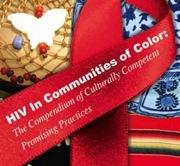
Case studies of culturally appropriate service delivery practices in HIV/AIDS prevention and treatment/care for minorities disproportionately affected by HIV disease. Each case study presents background, description of the best practice, level of intervention, staff, resources, and steps (based upon the BESAFE framework).
A promising practice is defined as “a model, program or activity with at least preliminary evidence of effectiveness in small-scale interventions or for which there is potential for generating data that will be useful for making decisions about taking the practice to scale and generalizing the result to diverse populations and settings.”
Each “proposed practice” was reviewed by a panel of experts and determined to meet at least three of the following five criteria:
1. Consistent and prolonged implementation
2. Suggested effectiveness in addressing the group identified
3. Successful use by at least one organization
4. Limited data to support the establishment of benchmarks
5. Potential for reliability